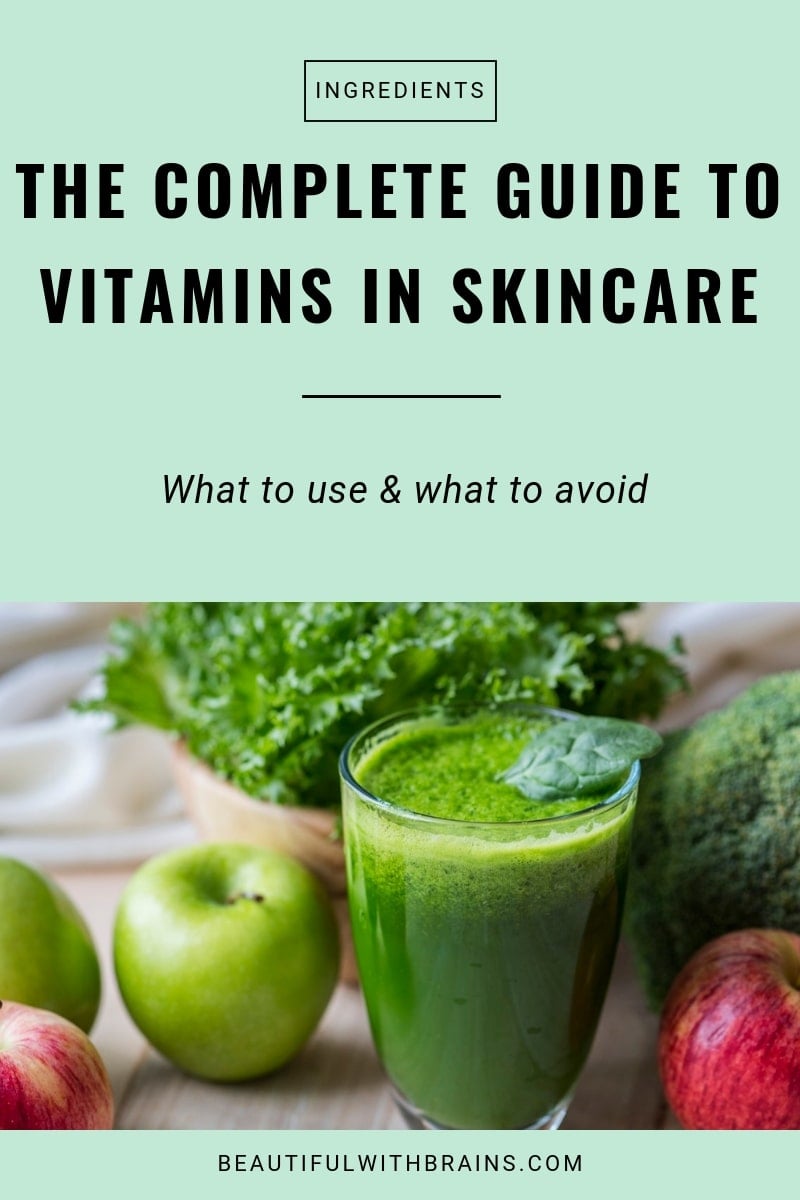
Are you eating your vitamins?
No, I’m not talking to you. I know you’re a good girl who’s eating her veggies, RIGHT?
I’m talking to your skin. It needs its own daily fix of vitamins to stay beautiful and young. But, which ones should it eat, and when?
I know, it can be confusing. That’s why I’ve put together this little guide to make sense of the ABC’s of vitamins:
Vitamin A
WHAT’S VITAMIN A?
A fat-soluble vitamin that comes in many forms:
- Hydroxypinacolone retinoate
- Retinaldehyde
- Retinol
- Retinyl Palmitate
- Retinyl Retinoate
- Tretinoin (retinoic acid – prescription only)
Basically, if there’s a “retin” in there, it’s a form of vitamin A.
WHAT DOES VITAMIN A DO FOR SKIN?
Vitamin A has plenty of skincare benefits, my beautiful smart friend:
- Accelerates cellular turnover (a natural process that replaces old dead cells with new healthy ones)
- Boosts the production of collagen, the protein that firms skin
- Busts acne
- Fights the free radicals that cause wrinkles
- Reduces the appearance of dark spots
- Shrinks the size of pores
DOES VITAMIN A HAVE ANY SIDE EFFECTS?
Sadly, yes:
- Irritation: If you’ve never used it before, vitamin A can irritate and dry out your skin. Start with a small concentration once or twice a week and build up both frequency and concentration gradually.
- Sun-sensitivity: Retinol makes skin more susceptible to sun damage, so use it only at night.
WHAT FORM OF VITAMIN A SHOULD YOU USE?
Almost all forms of vitamin A (hydroxypinacolone retinoate is the exception here) need to be converted into retinoic acid into the skin. It works like this:
Retinyl palmitate > Retinol > Retinaldehyde > Retinoic acid
Usually, the further away a form of Vitamin A is from retinoic acid, the less effective it is. So, I’d go with retinyl palmitate only if I had super sensitive skin.
So, to recap:
- Hydroxypinacolone retinoate: no conversion needed!
- Retinaldehyde: 1 step
- Retinol: 2 steps
- Retinyl Palmitate: 3 steps
- Retinyl Retinoate: 1 step
WHO SHOULD USE VITAMIN A?
- Anyone who’s serious about antiaging
- Anyone with oily and acne-prone skin (unless you’re on benzoyl peroxide)
WHO SHOULD NOT USE VITAMIN A?
- Anyone who’s on benzoyl peroxide
- Women who are pregnant, trying to conceive or are breastfeeding
- People with very sensitive skin
WHAT ARE THE BEST SKINCARE PRODUCTS WITH VITAMIN A?
- Dr Dennis Gross Skincare Ferulic Acid + Retinol Brightening Solution ($88.00): available at Dermstore, Nordstrom, Sephora and SpaceNK
- Paula’s Choice Resist Intensive Wrinkle-Repair Retinol Serum ($42.00/£39.00): available at Feel Unique, Nordstrom and Paula’s Choice
- Peter Thomas Roth Retinol Fusion PM ($65.00/£62.50): available at Beauty Bay, Cult Beauty, Sephora and Ulta
Related: Which Strength Of Retinol Do You Really Need?
Struggling to put together a skincare routine that minimises wrinkles, prevents premature aging, and gives your complexion a youthful glow? Download your FREE “Best Anti-Aging Skincare Routine” to get started (it features product recommendations + right application order):
Vitamin B1
WHAT’S VITAMIN B1?
A water-soluble vitamin in the B family. On ingredient lists, it goes by the name Thiamine HCL.
WHAT DOES VITAMIN B1 DO FOR SKIN?
Thiamine helps convert food into energy and plays a major role in nerve functions.
DOES VITAMIN B1 HAVE ANY SIDE EFFECTS?
Well, it’s not dangerous and you don’t want to be without it. That can cause weakness, chronic fatigue and nerve damage.
But, it doesn’t do anything when you put it on the skin. So, if you were considering buying that expensive moisturizer because it has vitamin B1, don’t. Your wallet will thank you.
WHO SHOULD USE VITAMIN B1?
- No one (in skincare, obvs – you still need to eat it!)
Vitamin B2
WHAT’S VITAMIN B2?
Vitamin B2 is a micronutrient. You probably know it as riboflavin.
WHAT DOES VITAMIN B2 DO FOR SKIN?
It plays a big role in cellular growth and respiration and helps your body metabolize what you eat.
DOES VITAMIN B2 HAVE ANY SIDE EFFECTS?
Well, this is another vitamin that’s useless when you topically apply it to the skin.
WHO SHOULD USE VITAMIN B2?
- No one (again, I’m only talking about skincare, folks!)
Vitamin B3
WHAT’S VITAMIN B3?
It’s the most multi-tasking member of the vitamin B family. Its superhero name is niacinamide.
WHAT DOES VITAMIN B3 DO FOR SKIN?
Let me count the ways it helps skin:
- Brightens a dull complexion
- Hydrates skin
- Reduces the appearance of dark spots and wrinkles
- Soothes irritations and rosacea
- Treats acne
DOES VITAMIN B3 HAVE ANY SIDE EFFECTS?
Nope. That’s the best part. It’s totally safe to use. For everyone.
WHO SHOULD USE VITAMIN B3?
- Everyone!
WHAT ARE THE BEST SKINCARE PRODUCTS WITH VITAMIN B3?
- Paula’s Choice Resist 10% Niacinamide Booster ($42.00): available at Dermstore, Look Fantastic, Nordstrom and Paula’s Choice
- The Inkey List Niacinamide ($6.99): Available at Cult Beauty, and Feel Unique
- The Ordinary Niacinamide 10% + Zinc 1% ($5.00): (Oily skin only!) available at Asos, Beauty Bay, Cult Beauty and Feel Unique
Related: Spotlight On Niacinamide
Vitamin B5
WHAT’S VITAMIN B5?
It’s the alcohol form of vitamin V panthotenic acid. Can you guess its common name? Yep, it’s panthenol.
By the way, don’t let the word “alcohol” scare you. Panthenol is the good kind of alcohol.
WHAT DOES VITAMIN B5 DO FOR SKIN?
This is another multitasker, my friend:
- Helps repair skin
- Hydrates skin
- Keeps oil production under control
- Soothes skin
DOES VITAMIN B5 HAVE ANY SIDE EFFECTS?
Nope, this one is safe for everyone, too.
WHO SHOULD USE VITAMIN B5?
- Everyone, but it’s particularly good for sensitive skin
WHAT ARE THE BEST PRODUCTS WITH VITAMIN B5?
- Paula’s Choice Calm Redness Relief Toner Normal To Oily ($21.00): available at Paula’s Choice
Vitamin C
WHAT’S VITAMIN C?
It’s a water-soluble vitamin that comes in many different forms:
- Ascorbic acid polypeptide
- Ascorbyl glucosamine
- Ascorbyl glucoside
- Ascorbyl palmitate
- Ester-C
- Ethyl ascorbic acid
- L-ascorbic acid (pure form)
- Magnesium ascorbyl phosphate
- Sodium ascorbyl palmitate
- Sodium ascorbyl phosphate
- Tetrahexyldecyl ascorbate
Basically, if it has “ascorb” somewhere in the name, it’s a form of vitamin C.
WHAT DOES VITAMIN C DO FOR SKIN?
It makes your skin look awesome:
- Boosts the production of collagen, which keeps skin firm
- Brightens the complexion
- Fights the free radicals that cause premature aging
- Lightens discolourations
- Prevents UV damage (especially when paired with vitamin E and ferulic acid)
DOES VITAMIN C HAVE ANY SIDE EFFECTS?
A couple:
- Irritation: If your skin is sensitive, vitamin C may irritate it.
- Sun-sensitivity: It can make skin more susceptible to sun damage, so use it with sunscreen or, better, at night.
WHICH FORM OF VITAMIN C SHOULD YOU USE?
L-ascorbic acid is the most effective. But also the most unstable. That means it won’t stay effective for long.
I’d go with magnesium ascorbyl phosphate because it’s fairly stable, is effective at low doses and fairly gentle.
WHO SHOULD USE VITAMIN C?
- Anyone who is serious about antiaging
- People with light discolourations
WHO SHOULD NOT USE VITAMIN C?
- Be careful with it if you have sensitive skin
WHAT ARE THE BEST SKINCARE PRODUCTS WITH VITAMIN C?
- Drunk Elephant C-Firma Day Serum ($80.00/£67.00): available at Cult Beauty, Sephora and SpaceNK
- Paula’s Choice C15 Booster ($49.00): available at Feel Unique, Nordstrom and Paula’s Choice
- Skinceuticals CE Ferulic ($166.00): available at Blue Mercury and Dermstore
Related: Types Of Vitamin C In Skincare Products
Vitamin D
WHAT’S VITAMIN D?
It’s a fat-soluble vitamin that’s formed in your skin by sunlight. That’s why lots of folks are telling you to skip the sunscreen.
Don’t listen to them. You don’t need to get wrinkles (or, worse, skin cancer) to get your vitamin D fix. Just gobble on fortified food or pop a supplement.
WHAT DOES VITAMIN D DO FOR SKIN?
A couple of important things:
- Helps treat acne
- Soothes irritations and allergies
DOES VITAMIN D HAVE ANY SIDE EFFECTS?
Nahhh. This is another safe vitamin.
WHO SHOULD USE VITAMIN D?
- People with sensitive skin
- Acne sufferers
WHAT ARE THE BEST SKINCARE PRODUCTS WITH VITAMIN D?
- One Love Organics Vitamin D Moisture Mist ($39.00): available at The Detox Market
- Sanitas Skincare VitaRich Serum ($58.00): available at Dermstore
Related: Vitamin D: How To Get Your Dose Without Skipping Sunscreen
Vitamin E
WHAT’S VITAMIN E?
It’s a fat-soluble vitamin that comes in many forms:
- D-alpha-tocopherol
- D-alpha-tocopherol acetate
- Dl-alpha tocopherol
- Dl-alpha tocopherol acetate
- Tocopherol
- Tocopheryl acetate
- Tocotrienols
Basically, if “tocopher” is there, you’re dealing with vitamin E.
P.S. The “d” prefix means vitamin E is derived from a natural source, such as wheat germ; the prefix “dl” means it’s synthetic.
WHAT DOES VITAMIN E DO FOR SKIN?
Wonders for your skin, baby:
- Moisturizes skin, reducing water loss
- Fights the free radicals that cause premature aging
- Helps protects your skin from UV rays (when paired with vitamin C)
- Helps skincare products last longer
DOES VITAMIN E HAVE ANY SIDE EFFECTS?
Not really. Unless you buy a huge jar because you think it can heal scars. That’ll hurt your wallet cos it ain’t true.
WHO SHOULD USE VITAMIN E?
- Everyone.
WHAT ARE THE BEST SKINCARE PRODUCTS WITH VITAMIN E?
- Drunk Elephant C-Firma Day Serum ($80.00/£67.00): available at Cult Beauty, Sephora and SpaceNK
- Paula’s Choice C15 Booster ($49.00): available at Feel Unique, Nordstrom and Paula’s Choice
- Skinceuticals CE Ferulic ($166.00): available at Blue Mercury and Dermstore
Related: Vitamin E In Cosmetics
Vitamin F
What’S VITAMIN F?
A fake vitamin. It’s how you call fatty acids that your body doesn’t create. For example:
- Arachidonic acid
- Linoleic acid
- Linolenic acid
WHAT DOES VITAMIN F DO FOR SKIN?
A few things:
- Hydrates skin
- Helps repair skin’s protective barrier
- Fights the free radicals that cause premature aging
DOES VITAMIN E HAVE ANY SIDE EFFECTS?
Not, really. You can use it safely.
WHO SHOULD USE VITAMIN F?
- Everyone can use it, but it’s best suitable for dry skin.
WHAT ARE THE BEST PRODUCTS WITH VITAMIN F?
- The Ordinary Ascorbyl Tetraisopalmitate Solution 20% In Vitamin F (£14.90): available at Asos, Beauty Bay, Cult Beauty and Sephora
- Trilogy Rosehip Oil Antioxidant + ($44.00): available at Feel Unique
Vitamin H
WHAT’S VITAMIN H?
This is tricky. Vitamin H is considered part of the vitamin B family. That’s why it also goes by the name vitamin B7. Confused much?
You probably know it under another name: biotin. It’s the water-soluble vitamin produced by the body you’re meant to take for healthy hair and nails. But what does it do for the skin?
WHAT DOES VITAMIN H DO FOR SKIN?
Mmmm. Here’s what I know. It has moisturizing properties.
DOES VITAMIN H HAVE ANY SIDE EFFECTS?
Well, it’s not dangerous, but…
Biotin can’t penetrate the skin, so there’s no point putting it there.
WHO SHOULD USE VITAMIN H?
- No one (I’m only talking about topical application on the skin here, folks).
Vitamin K
WHAT’S VITAMIN K?
A fat-soluble vitamin produced in the liver. Its other name is phytonadione.
WHAT DOES VITAMIN K DO FOR SKIN?
It plays a part in the coagulation process. That’s why some folks are suggesting it may help with dark circles.
One study confirms that. But, there’s a catch. Vitamin K was used together with retinol and vitamins C and E, so we don’t know how (or even if!) effective it is on its own.
DOES VITAMIN K HAVE ANY SIDE EFFECTS?
For your wallet, if it doesn’t turn out to be the miracle cure for your dark circles you hoped it to be. Otherwise, nope.
WHO SHOULD USE VITAMIN K?
- Those of you with serious dark circles to treat and enough money not to care if it doesn’t deliver
The Bottom Line
Vitamin B3’s a must for everyone. So, don’t cheat and get your daily fix. And if you’re serious about anti-aging and your skin isn’t too sensitive, get a healthy dose of vitamins A and C every few days. If you want to, you can sneak in some of the other vitamins, too. The more, the merrier, right?

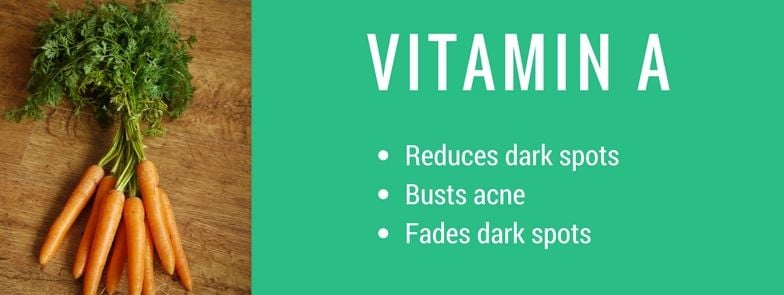



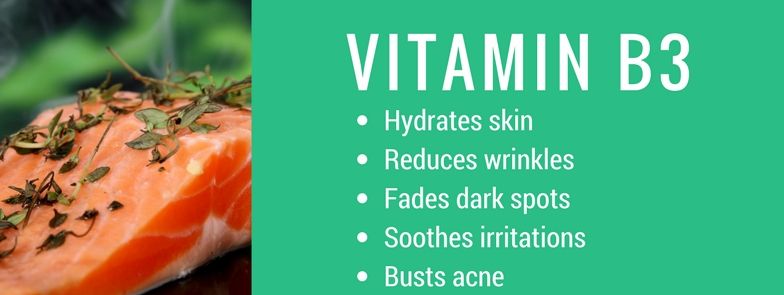

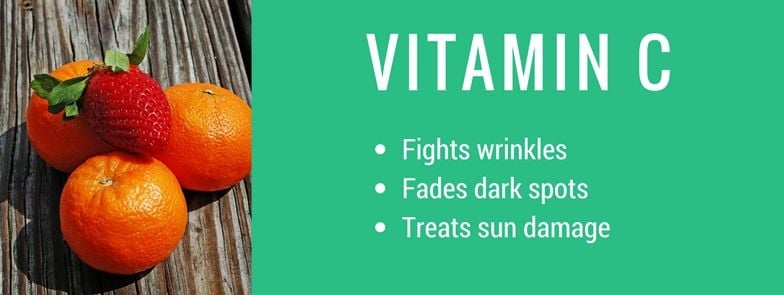
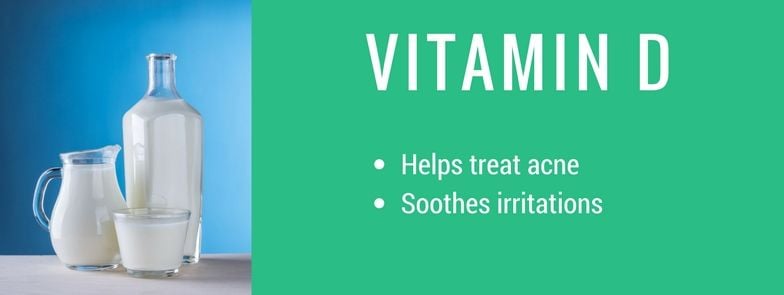
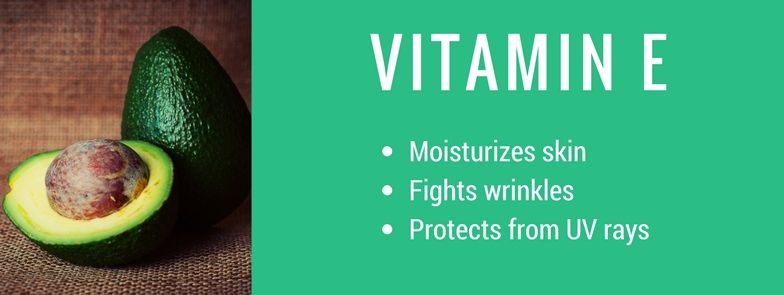
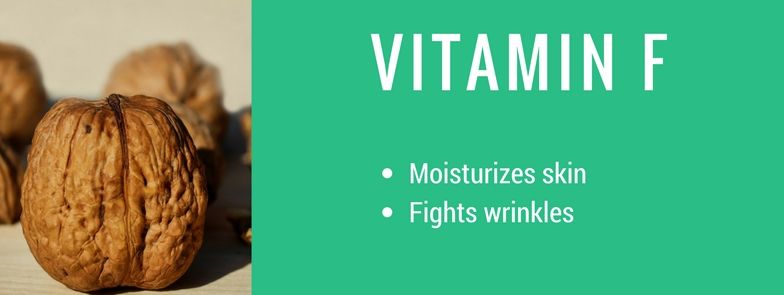
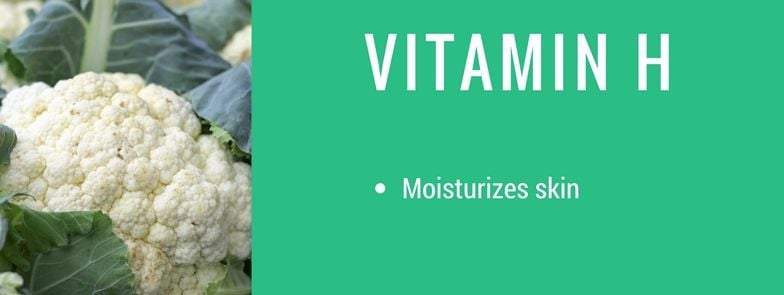
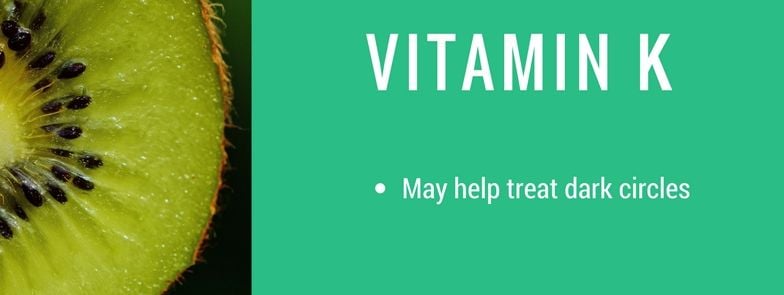
You are the best.
That is all.
Ana, aww thank you!
That’s cos I have the best readers. You always inspire me to go the extra mile. 🙂
Agree! 🙂 and I really loved this post. So informative.
One Question: can you mix the pc antioxidant serum with a niacinamide serum? Layer them?
Suzanne, oh thank you!
Yes, you can. According to the latest research, niacinamide and vitamin C aren’t as incompatible as once thought. But you can always wait a few minutes between them if you’re concerned about it.
HI, I’ve just discovered your blog and find it incredibly well thought and informative… I’m about to load up on Vitamins for my skin 😉 BUT it would be great to get some kind of cheat-sheet on what to use with what, what products ‘layer’ well and which don’t. For instance, can I use vitamin C serums with retinol products? Is it better to use vitamin B in the morning or the evening? Any advice on the order of product use, or which to combine or not would be greatly appreciated! Thanks 🙂
Bailey, hi. So happy you find this blog useful.
I’ve written a post about the ingredients you should never mix and match here: http://www.beautifulwithbrains.com/skincare-ingredients-shouldnt-match/
As the post says, there is a way to use both retinol and vitamin C together so they can work to their full potential. But both ingredients are pretty strong so if you’ve never used them before, I recommend starting with one and when your skin has become used to it, add the other. Or you could use them on alternate days.
Vitamin B can be used both in the morning and at night.
Love this article! I think I myself am a fan of Vitamin E (which I will be getting!), B3 (I got The Ordinary one!), and A (I got The Ordinary one that you recommended!).
Barbara, vitamins are awesome, aren’t they? Let me know how you like the serum. 🙂
Hi Gio, I’m a little confused with all this “C thing”. I’ve read many different opinions. Others say that, you have better sun protection if you use a vitamin c serum UNDER your sunscreen (especially combined with E and ferulic), and …others that you should never use vitamin c during daytime even under sunscreen because it makes skin more sensitive and you get sun spots. What is your opinion? Should I wear a vitamin c serum under sunscreen? Will my skin be more protected? In my country the sun is always extremelly strong even in winter time and I have very white skin, I would not want to cause more damage than good.
Despina, vitamin C, when used with vitamin E and ferulic acid, can indeed boost the protection of your sunscreen. I think it’s safe to apply this combination under your sunscreen as long as you keep reapplying it several times throughout the day. If you don’t, the sunscreen will become ineffective and the vitamin C may indeed make your skin more susceptible to sun damage. I guess some people don’t recommend vitamin C at all during the day because they know very few people bother to reapply their sunscreen as often as it is necessary.
So, either use vitamin C under sunscreen and reapply sunscreen regularly (which you should be doing anyway) or use vitamin C at night. Hope this helps.
Hello again
What are your thoughts about ascorbyl glycoside?
I am looking at the ordinary ascorbyl glycoside solution 12% and their matrixyl 10% + HA. If I should layer this, which should go on first?
Suzanne, ascorbyl glucoside isn’t the best form of vitamin C to treat dark spots but if you only want to prevent wrinkles and brighten skin, it works well. As for the order, the one with the lightest texture goes first. That helps enhance the penetration of both.
Gio, I already love you! Thank you for all of your research and for sharing your brains!
Much love from an engineer from Argentina! 🙂
Lucia, aww thank you so much! Thank you for your support. Hope to see you here often, too. 🙂